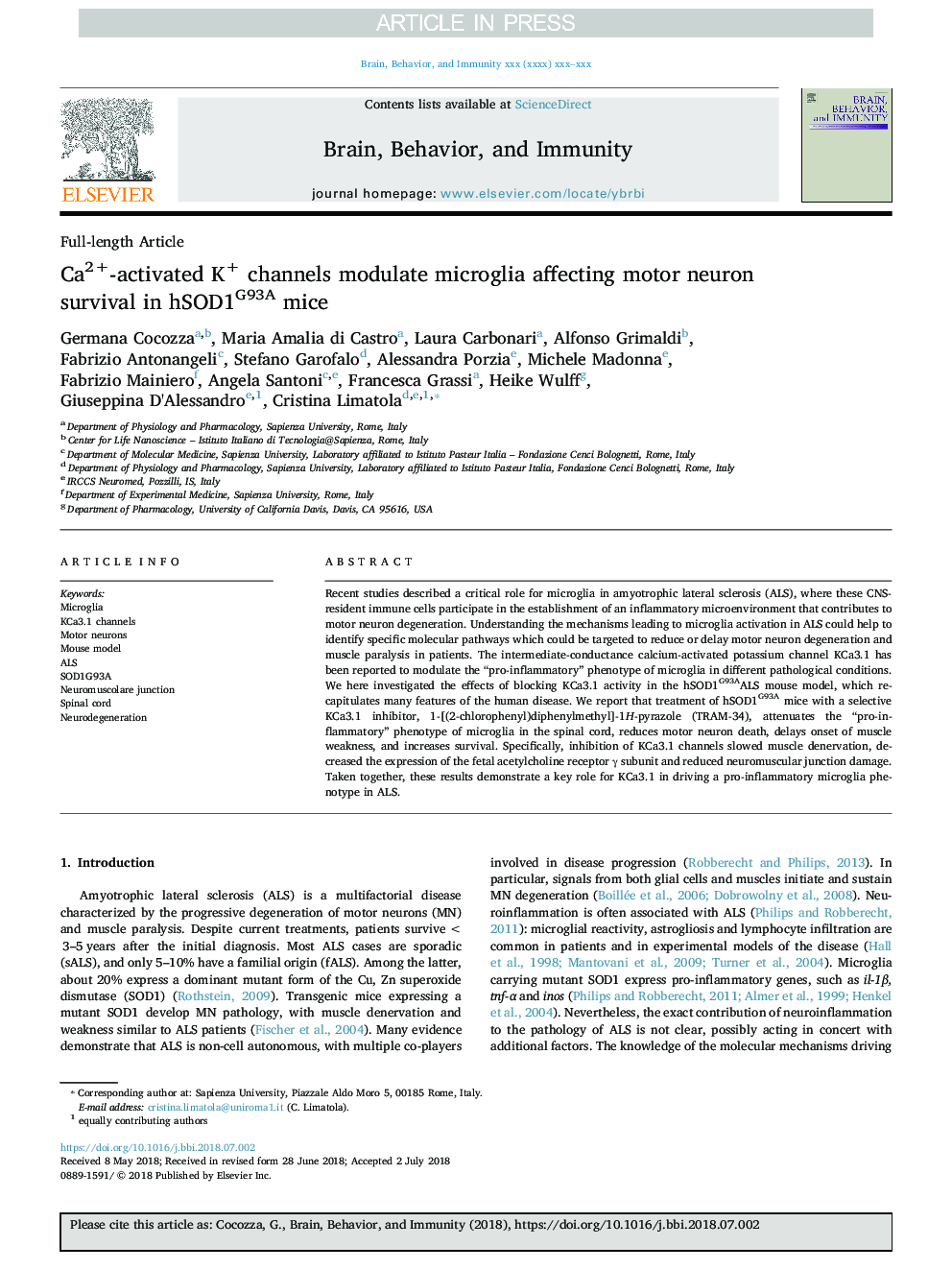| کد مقاله | کد نشریه | سال انتشار | مقاله انگلیسی | نسخه تمام متن |
|---|---|---|---|---|
| 8960766 | 1646430 | 2018 | 12 صفحه PDF | دانلود رایگان |
عنوان انگلیسی مقاله ISI
Ca2+-activated K+ channels modulate microglia affecting motor neuron survival in hSOD1G93A mice
دانلود مقاله + سفارش ترجمه
دانلود مقاله ISI انگلیسی
رایگان برای ایرانیان
کلمات کلیدی
موضوعات مرتبط
علوم زیستی و بیوفناوری
ایمنی شناسی و میکروب شناسی
ایمونولوژی
پیش نمایش صفحه اول مقاله

چکیده انگلیسی
Recent studies described a critical role for microglia in amyotrophic lateral sclerosis (ALS), where these CNS-resident immune cells participate in the establishment of an inflammatory microenvironment that contributes to motor neuron degeneration. Understanding the mechanisms leading to microglia activation in ALS could help to identify specific molecular pathways which could be targeted to reduce or delay motor neuron degeneration and muscle paralysis in patients. The intermediate-conductance calcium-activated potassium channel KCa3.1 has been reported to modulate the “pro-inflammatory” phenotype of microglia in different pathological conditions. We here investigated the effects of blocking KCa3.1 activity in the hSOD1G93AALS mouse model, which recapitulates many features of the human disease. We report that treatment of hSOD1G93A mice with a selective KCa3.1 inhibitor, 1-[(2-chlorophenyl)diphenylmethyl]-1H-pyrazole (TRAM-34), attenuates the “pro-inflammatory” phenotype of microglia in the spinal cord, reduces motor neuron death, delays onset of muscle weakness, and increases survival. Specifically, inhibition of KCa3.1 channels slowed muscle denervation, decreased the expression of the fetal acetylcholine receptor γ subunit and reduced neuromuscular junction damage. Taken together, these results demonstrate a key role for KCa3.1 in driving a pro-inflammatory microglia phenotype in ALS.
ناشر
Database: Elsevier - ScienceDirect (ساینس دایرکت)
Journal: Brain, Behavior, and Immunity - Volume 73, October 2018, Pages 584-595
Journal: Brain, Behavior, and Immunity - Volume 73, October 2018, Pages 584-595
نویسندگان
Germana Cocozza, Maria Amalia di Castro, Laura Carbonari, Alfonso Grimaldi, Fabrizio Antonangeli, Stefano Garofalo, Alessandra Porzia, Michele Madonna, Fabrizio Mainiero, Angela Santoni, Francesca Grassi, Heike Wulff, Giuseppina D'Alessandro,